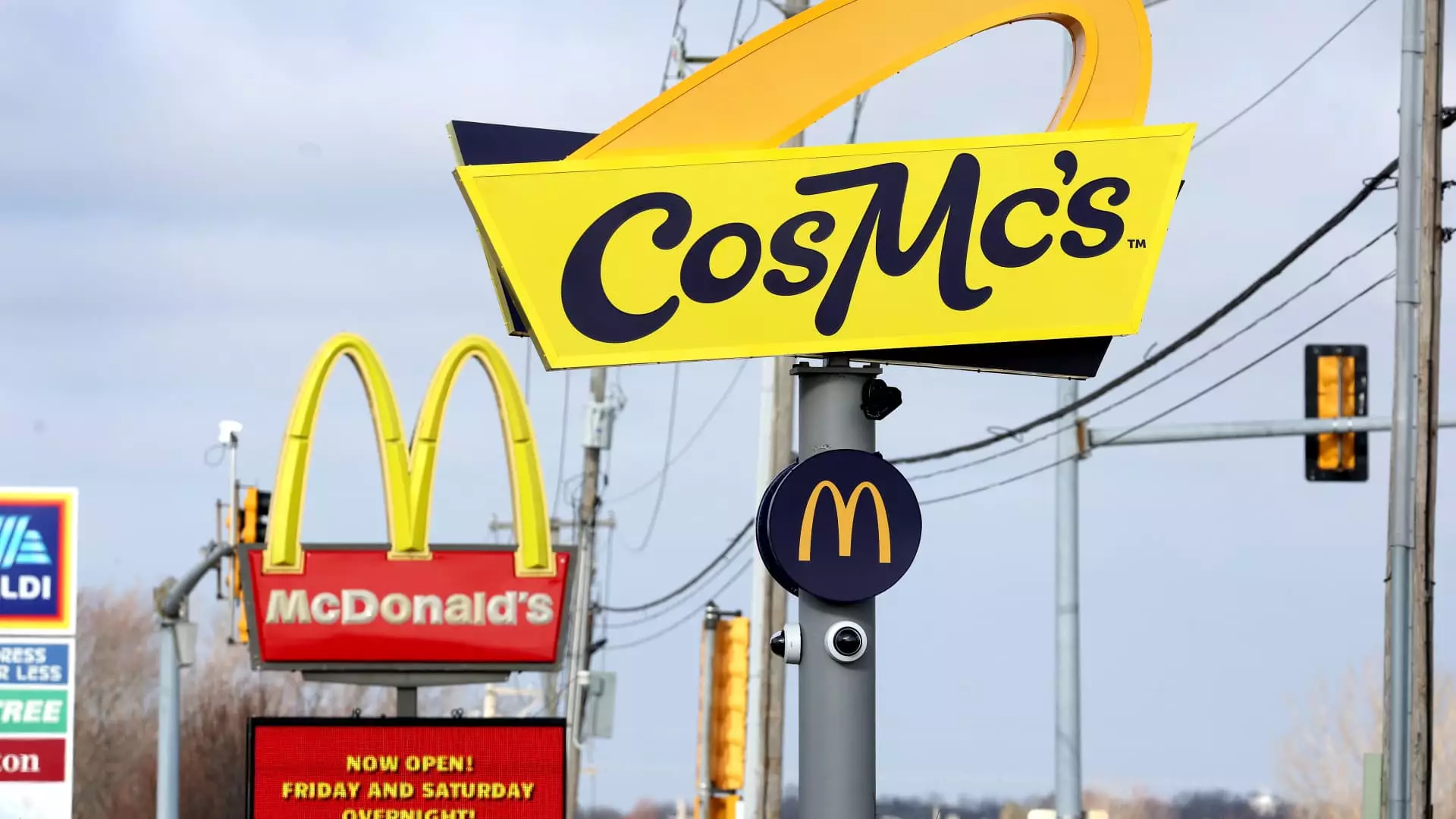In a surprising turn of events, McDonald’s has announced the closure of three CosMc’s locations, its drinks-focused spinoff chain, which debuted with great fanfare over a year ago. The first venture was launched in Bolingbrook, Illinois, followed by an expansion into Texas, where several locations were established. Initially, McDonald’s envisioned CosMc’s as an innovative way to capture the growing demand for afternoon beverage offerings, a market that has proven fruitful for competitors like Starbucks and Dutch Bros. However, the recent decision to scale back operations raises questions regarding the effectiveness and viability of this new brand within McDonald’s extensive portfolio.
McDonald’s commitment to the CosMc’s pilot program was not just about expanding its beverage choices; it also intended to draw insights about consumer preferences in this niche. The fast-food giant has shared that its smaller, prototype locations have shown better performance compared to the larger ones, suggesting that format plays a critical role in customer engagement. While specifics about which locations will close or open have not been disclosed, it is clear that there will be at least two new smaller locations in Texas to replace some of the larger ones.
Despite these setbacks, the feedback from the pilot program has yielded valuable information. For instance, savory hash browns emerged as a surprising best-seller, challenging assumptions about beverage-focused offerings. Other popular items include McPops, a fun addition to the menu that aligns with snacking trends among young consumers, and an assortment of creative beverages such as the Island Pick Me Up Punch.
The competitive landscape surrounding cold beverages is fierce, with established players like Starbucks offering the allure of customization and innovative flavor profiles. McDonald’s entry into this market through CosMc’s is an attempt to leverage its brand while adapting to emerging consumer preferences. The inclusion of unique drinks such as iced turmeric spiced lattes indicates McDonald’s effort to experiment and reinvent its classic image to align with modern health trends.
Nevertheless, despite these innovations, CosMc’s remains a minor component of McDonald’s broader strategy, dwarfed by the company’s 13,500 U.S. locations. It is evident that brand loyalty, coupled with a more tailored approach to consumer tastes, will be paramount in driving the success of the CosMc’s concept.
While McDonald’s faces challenges in establishing CosMc’s as a prominent player, the corporation is not ready to abandon the venture just yet. The company aims to continue learning from its customers and has even rolled out a loyalty program explicitly designed for CosMc’s. This strategic decision could help strengthen customer relationships and foster a sense of community around the brand.
The journey of CosMc’s illustrates how even a titanic brand like McDonald’s must navigate trials and tribulations while experimenting with new concepts. Closure of some locations does not signify an outright failure, but rather a step back in order to regroup and refine their approach. McDonald’s commitment to understanding the beverage market’s intricacies may allow CosMc’s to secure its place in the ever-evolving fast-food landscape.


Leave a Reply